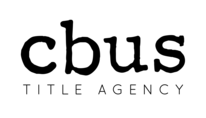Navigate your first home purchase with confidence through Stewart: Cbus Title's comprehensive guide to title insurance protection in Powell, Ohio.

Buying your first home represents one of life's most significant financial decisions, and understanding title insurance protection becomes crucial for safeguarding your investment. Many first-time homebuyers feel overwhelmed by the complex paperwork and unfamiliar terminology, but having the right knowledge empowers you to make informed decisions.
Protect your investment with comprehensive title services from Cbus Title Agency in Columbus, OH. Our experienced team ensures your property rights are secure from day one. Contact us at (614) 880-9327 to discuss your title insurance needs.
What Is Title Insurance and Why Do You Need It?
Title insurance protection serves as your financial safeguard against potential legal issues that could arise with your property's ownership history. Unlike other insurance policies that protect against future events, title insurance protects you from past problems that might surface after you've purchased your home.
When you buy a property, you're purchasing the legal right to own that land and building. However, previous owners might have left behind hidden problems like unpaid taxes, contractor liens, or forged documents that could challenge your ownership rights.
First-time homebuyer title insurance provides coverage for:
- Unpaid property taxes from previous owners
- Contractor liens for work performed before your purchase
- Boundary disputes with neighboring properties
- Errors in public records or legal documents
- Fraud or forgery in the property's chain of ownership
How the Property Title Search Process Works
Before issuing your title insurance policy, professionals conduct a thorough property title search to examine the property's ownership history. This detailed investigation involves reviewing public records, court documents, and legal materials that trace the property's ownership back many years.
The title search process includes examining:
- Deeds and ownership transfers
- Mortgage and lien records
- Tax records and assessments
- Court judgments and legal proceedings
- Easements and property restrictions
During this search, title professionals look for potential problems that could affect your ownership rights. If issues are discovered, they work to resolve them before your closing date. Most title searches in Ohio take one to two weeks to complete, depending on the property's complexity.
Understanding Title Insurance Costs in Ohio
Title insurance costs in Ohio typically represent a one-time fee paid at closing, making it different from ongoing insurance premiums. The cost usually ranges from 0.5% to 1% of your home's purchase price, though this can vary based on several factors.
Elements that influence your title insurance premium include:
- Your home's purchase price
- The type of policy you choose
- Your property's location within Ohio
- The complexity of the title search required.
You'll encounter two types of title insurance policies: owner's policy and lender's policy. The lender's policy protects your mortgage company's interest, while the owner's policy protects your investment. Most lenders require a lender's policy, but the owner's policy is optional though highly recommended.
Don't let title issues derail your home purchase. Cbus Title Agency in Columbus, OH provides comprehensive title insurance solutions tailored to first-time buyers. Call us at (614) 880-9327 for a personalized consultation.
Real Estate Closing Protection Essentials
Real estate closing protection encompasses more than just title insurance, though title insurance forms a crucial component of your overall protection strategy. The closing process involves numerous legal documents, financial transactions, and title transfers that require careful attention to detail.
Your title company serves as a neutral third party during closing, ensuring all documents are properly executed and recorded. They coordinate with your real estate agent, lender, and attorney to make sure every aspect of the transaction proceeds smoothly.
Key elements of closing protection include verification of all parties' identities, review of closing documents for accuracy, proper handling of earnest money and down payments, and recording of deeds and other legal documents. The closing process typically takes 30 to 45 days from contract acceptance to final closing.
Your Homebuyer Title Rights in Ohio
Understanding your homebuyer title rights empowers you to make informed decisions throughout the purchase process. Ohio law provides specific protections for homebuyers, and knowing these rights helps you navigate potential challenges with confidence.
As a homebuyer in Ohio, you have the right to choose your own title insurance company, review all title search results before closing, receive clear explanations of any title issues discovered, and request resolution of title problems before proceeding.
Your title insurance policy remains in effect for as long as you own the property, providing ongoing protection against covered title defects.
Common Title Issues and Smart Decision Making
First-time homebuyers often discover title issues they never anticipated, making title insurance protection even more valuable. Common problems include liens from unpaid contractor work, tax liens from previous owners, judgment liens from legal disputes, and boundary line disagreements with neighbors.
Many of these issues can be resolved before closing with proper legal assistance and coordination between all parties involved.
Take the next step toward secure homeownership with comprehensive title insurance protection from Cbus Title Agency in Columbus, OH. Call us today at (614) 880-9327 to learn more about our first-time buyer services and schedule your consultation.






